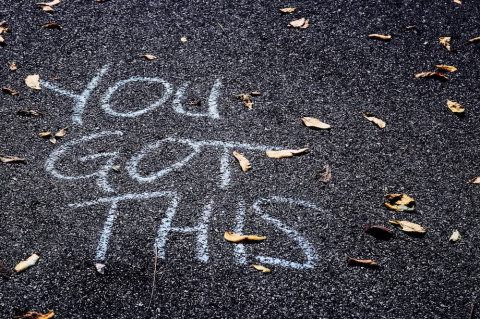
9 min
0
10.04.2022

Dealing with daily activities requires a lot of energy. In a study, nearly 30% of students reported feeling tired or sleepy every day for a week. If you're one of them, here are 10 tricks on how to get more energy and be more productive!
Increase Your Energy Level With These Tricks
Are you feeling exhausted every time you come home from school and finding it hard to deal with your writing assignments? Here are proven and effective ways to amplify your energy levels.
Boost Energy With a Cup of Coffee
Waking up in the morning is hard, and your energy level is typically low. So why not get a buddy that will help you boost your energy? A cup of coffee can be an energy-boosting beverage that's good for you and will help fuel you for the rest of the day.
Performing tasks every day can be very stressful. Drinking coffee has many health benefits that will boost your mind and provide you the alertness that you need. It also significantly improves your physical performance and strength, so you will be able to accomplish your tasks and be more productive throughout the day.
Drink Enough Water
Besides coffee, water is the most widely consumed beverage in the world. Staying hydrated is a key to have a healthier lifestyle because it ensures that your body systems work well every day.
It's essential to good health because water makes up about 50%-70% of your body weight. Your body relies on water to survive. Every day, you lose water through different activities such as breathing, sweating, urinating, and bowel movements.
Dehydration significantly affects your ability to learn and focus. You should drink water, at least 2.7 liters for women and 3.7 liters for men, throughout the day for your body to function properly.
Exercise Regularly
Starting your day with the right state of mind will improve your productivity. Exercising will help elevate your mental and emotional health. For example, taking a brisk walk for 15-20 minutes a day can boost your energy to last up to two hours.
A study demonstrates that students can reduce their daily stress by 20% through physical activity. It increases your alertness and the level of endorphins, also called mood boosters, in your body.
Have a Good Night's Sleep
Quality sleep is an essential part of your daily routine. Getting adequate hours of sleep is as important to survive as food and water. Lack of sleep will cause tiredness, advanced aging, and inability to focus. Students mainly experience sleep deprivation for several reasons, such as schoolwork, projects, theses, personal life obligations, and family matters.
Everyone needs enough sleep. A regular sleep schedule will balance your day and help you function efficiently to write your paper or other assignments. It lowers stress levels and sustains the energy that will help you power through the day.
Do a Power Nap
Can't finish your research paper because you feel groggy or tired? Taking a nap can be a great help! How long is a power nap? It's better to take a 15 to 30-minute nap in the afternoon to fight your body's natural instinct to get tired in the latter part of the day.
Be careful not to turn this 30-minute nap into a full hour or more, though! You'll find it hard to fall asleep at night, and the cycle begins again.
Take Necessary Vitamins
Vitamins give your body the micronutrients it needs to have proper metabolism and increase energy. In order to help your body perform great, you should take the necessary vitamins. In the modern day, people rely on energy drinks if they experience a lack of energy. This is okay for a short while, but taking energy drinks will be detrimental to your health in the long term.
You can get these vitamins instead:
- Vitamin A plays different roles in the proper growth and development of the human body, including helping people maintain energy levels. It's a good source of energy.
- Vitamin B helps create energy and red blood cells that carry oxygen throughout the body.
- Vitamin C is an antioxidant that keeps body tissues like muscles and gums healthy while boosting your immune system.
- Vitamin D is for strong teeth and bones and aids in calcium absorption.
- Vitamin E maintains body tissues, protects the lungs from pollution, and is vital in forming and sustaining red blood cells.
Before taking any of these vitamins, you should know which one is necessary to you. Meet with your family doctor before you consume any vitamins and supplements.
Eat Healthy Meals and Don't Skip
Eating healthy foods and having a healthy diet are crucial to protect ourselves from illnesses and keep our immune system strong. Students tend to forego eating healthy meals to indulge in junk foods loaded with fat, sugar, carbs, and preservatives.
Maintaining a balanced diet will improve your energy and school performance. Healthy eating includes consuming energy-boosting foods such as high-quality proteins, carbohydrates, healthy fats, vitamins, and minerals necessary for your well-being.
Eating five small meals throughout your day keeps your metabolism and energy functioning at maximum capacity. Still, if you're too busy and you find eating "time-consuming," it's best to eat three medium-sized meals a day and carry complex carbs, such as nuts, fruits, peanut butter sandwiches, or whole grains energy bars in your bag to eat between meals. Avoid skipping meals, especially during lunch break, even if you're in a hurry.
Care for Your Mental Health
Stress and anxiety can contribute to feelings of extreme fatigue, burnout, and low energy. They can also make people feel less able to manage daily demands. It's an essential part of your life and impacts your thoughts, behaviors, and emotions. Keeping the wellness of your mental health will promote high performance in activities, especially in school.
Problems related to mental health can impact different people in various ways. If you see changes in your overall performance, connect more with people you know will understand. Reaching out to other people in your life can help provide the support that you need.
Manage Your Stress and Anger
Stress is not new to anyone, especially students. It can have a massive impact on your overall health that consequently affect your grades. Roughly 30% of the teens experiencing significant levels of chronic stress experienced being overwhelmed, depressed, or sad because of it.
These are the following stress hormones that directly affect our body and mind:
- Cortisol. The ultimate stress hormone. It's responsible for producing more glucose in the blood to send more energy to the muscles. In stressful events, our brain sends out commands to release greater amounts of cortisol.
- Glucagon. The pancreas synthesizes this stress hormone. It focuses on the metabolism of carbohydrates and causes the liver to release glucose when our body needs it, either because of stressful situations or low blood sugar levels.
- Prolactin. The pituitary gland secretes this stress hormone, whose primary role is to stimulate the secretion of milk from women during lactation.
- Sex hormones. Testosterone is the male sex hormone responsible for the development of male sexual characteristics. At the same time, estrogen essentially affects the sexual desire of women, and high levels of stress can deplete the release of it. Meanwhile, progesterone is responsible for regulating the menstrual cycle. So when the production of this decreases, symptoms such as high fatigue, weight gain, headaches, mood swings, and lack of sexual desire happens.
Prolonged exposure to anger can also raise blood pressure which initiates other issues that affect us physically and emotionally. It can drain the energy that you need in your daily activities.
To manage your stress and anger, you need to look at how these emotions impact your life. Stress and anger are natural occurrences that you can deal with. The way we deal with these emotions is vital to maintain a healthy lifestyle.
You can't prevent stressful events from occurring, but you can control how you react to them. Use stress management techniques and mitigate how it affects your routine.
You also can't avoid incidents that will make you feel angry but expressing your feelings in well-mannered ways when they are still manageable can cut out the feeling of being enraged.
Spend Time in Nature
People believe that nature has its way of calming people. Natural energy calms your mind and removes tension from your body. It reduces your heart rate, blood pressure, muscle strain and lowers stress hormones.
It's advisable to walk and spend time in nature at least once a week to raise your motivation and keep your energy high to be more creative and dynamic.
Even though you don't have a lot of time to do everything within the day, incorporating these tricks into your lifestyle will give you more energy. The small changes you make today can have a massive difference tomorrow.



